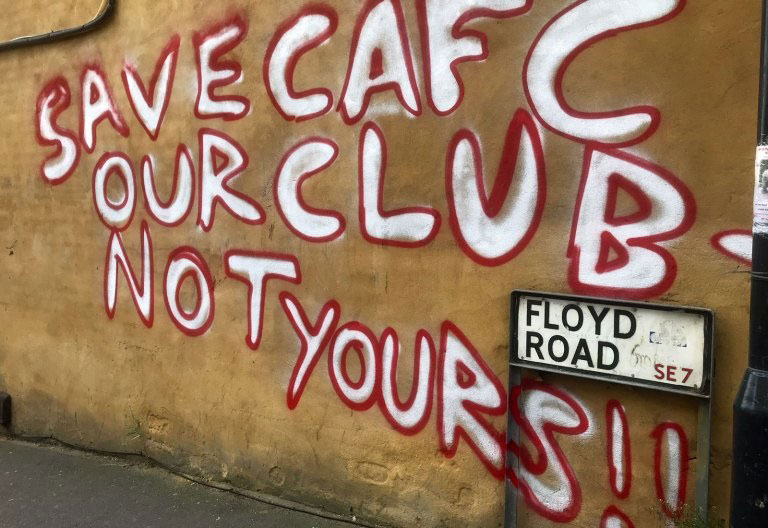Fan club
Changes to football regulation must reflect the special relationship fans have with the teams they support

GOVERNANCE
Image: Istock
The governance and regulation of English football continues to attract considerable attention, following the establishment of the Our Beautiful Game campaign, the debacle of the short-lived European Super League and the government’s decision to set up a fan-led review of football governance. Campbell Tickell is involved in this debate, arguing for an independent regulator for the sport. In the last CT Brief, we featured an article from the Football Supporters Association. In this issue, we have an article from Fair Game, a new organisation bringing together 20 clubs at different levels of the ‘football pyramid’. We also decided to invite supporters’ trusts from individual clubs to present their perspectives on the debate about the way the sport is run.

Martin Cloake

Katrina Law
Co-chairs, Tottenham Hotspur Supporters’ Trust
A view from Tottenham Hotspur Supporters’ Trust
The attempted breakaway from English football by six Premier League clubs, including Tottenham Hotspur, was a watershed moment. It sparked the current review of the whole game’s governance and makes it much harder for the final recommendations to evade the major issues, as has been the case with previous reviews.
It also underlined why it is important for the voice of ordinary fans to be properly represented at club board level. As we said in our submission to the Department for Digital, Culture, Media and Sport: “A decision with fundamental consequences for the very nature and future of [Tottenham Hotspur] could be made without any prior information being given to fan representatives, let alone consultation.” That decision, to abandon and perhaps irreparably damage English football to join the European Super league, was made in the face of stated opposition.
There are some people who still believe that it is not appropriate for mere fans to be involved at board level. Or that those who run our clubs can be fans themselves. This ignores, arguably wilfully, the unique relationship between customer and business that exists in football.
THST has, like many other Trusts, spent years trying to get the Club Board to recognise the value of working with fans and drawing on the passion they have for their Club. The ESL episode showed relationships based solely on goodwill aren’t enough. Structural change is needed to redress the balance of power, making clubs more than just investments, and recognising their place as a valuable part of our cultural heritage.
“There are some people who still believe that it is not appropriate for mere fans to be involved at board level. Or that those who run our clubs can be fans themselves. This ignores, arguably wilfully, the unique relationship between customer and business that exists in football.”


Heather McKinlay
Chair, Charlton Athletic Supporters’ Trust
Charlton Forever?
When Charlton Athletic Supporters’ Trust (CAST) presented to the Fan-led Review panel, Tracey Crouch was eager to share that she was well-briefed on our club. Her builder was a passionate Addick and had proudly daubed “Charlton Forever” on the inside of her plasterboard wall.
The poignancy was not lost on us. Just a year ago, we had grave concerns whether Charlton Athletic would survive the coming weeks – let alone forever. Our main message to the panel was that what happened to our club should never happen to any club again. We endured months of agony and sleepless nights from March to September 2020. The club’s future was on the line because of the conflict between English Football League regulations and company law, and the shenanigans of a cast of characters trying to capitalise on this.
Our mission as CAST is to protect, preserve and promote Charlton Athletic for this and future generations. We are answerable to nearly 3,000 members, the wider fanbase and the community.
Charlton supporters are renowned for our activism – from the Valley Party through to protests against absentee owner Roland Duchâtelet. We knew we could rely on fellow supporters to step up again.
However, saving a medium-sized football club in this day and age is beyond the reach and means of mere fans. For all our passion, preparation and professional backgrounds, the best we could hope and plan for was a seat at the table if administration happened. Meanwhile the EFL remained aloof.
It was sheer good fortune that saved our club. Danish/American multi-millionaire Thomas Sandgaard decided to buy into English football and he fell for Charlton Athletic. When many others would have walked off in horror, he demonstrated the focus, resources and ingenuity to untangle the complex web. Unless change comes soon, other clubs will not be so lucky.
The FSA recently submitted a report to the fan-led review of football governance chaired by MP Tracey Crouch. CT contributed to this with evidence from our report into how independent regulation can be made to work in English football.


